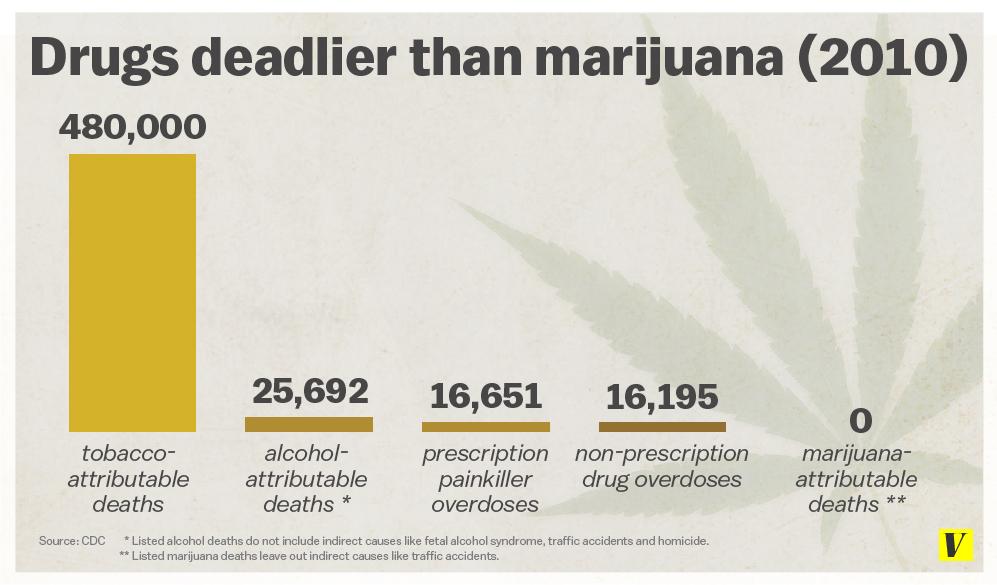Has Anyone Died from Smoking Weed? A Closer Look at the Myths and Realities
In the ever-evolving landscape of public perception regarding cannabis, one question looms large: can smoking weed be fatal? As marijuana gains increasing acceptance globally for both recreational and medicinal use, the discourse surrounding its safety remains fraught with myths, misunderstandings, and a cloud of uncertainty. While alcohol and tobacco have long been associated with significant health risks and mortality, the narrative surrounding cannabis complicates the conversation. This article endeavors to peel back the layers of anecdote and speculation, exploring existing evidence, expert opinions, and case studies to uncover the truth behind the question: has anyone really died from smoking weed? Join us as we navigate the intersection of science, society, and stigma to bring clarity to the debate.
Table of Contents
- Understanding the Risks of Cannabis Use and Its Impact on Health
- Exploring Documented Cases of Cannabis-Related Fatalities
- The Role of Pre-existing Conditions in Cannabis Safety
- Best Practices for Responsible Consumption of Marijuana
- Q&A
- Future Outlook
Understanding the Risks of Cannabis Use and Its Impact on Health
Cannabis use, while often celebrated for its therapeutic benefits, is not devoid of risks. The potential health impacts can vary widely among individuals due to factors such as genetic predispositions, the method of consumption, and the potency of the product. Some of the key considerations include:
- Respiratory Issues: Inhalation of smoke can lead to chronic bronchitis, cough, and other lung-related problems.
- Psychological Effects: Cannabis can exacerbate underlying mental health conditions and may trigger acute episodes in susceptible individuals.
- Dependency Risks: Regular use can lead to the development of cannabis use disorder, characterized by an inability to control use despite negative consequences.
Research indicates that while there is a low direct mortality rate associated with cannabis smoking, indirect risks do exist. The following table outlines some potential health risks and their related factors:
| Health Risk | Associated Factors |
|---|---|
| Increased Heart Rate | Higher levels of tetrahydrocannabinol (THC) |
| Impaired Coordination | Acute intoxication |
| Long-term Lung Damage | Frequent use and method of consumption |
| Anxiety & Paranoia | High-THC strains |
Exploring Documented Cases of Cannabis-Related Fatalities
While cannabis is often regarded as a relatively safe substance, the question of whether it can lead to fatalities has sparked considerable debate. Documented cases of cannabis-related deaths are exceedingly rare, primarily because these occurrences are usually linked to underlying medical conditions or the use of other substances in conjunction with cannabis. Explorations of such cases reveal that fatalities often arise from factors such as cardiovascular complications, psychiatric disorders, or incidents stemming from impaired judgment while under the influence. Although statistics are limited, some reports indicate:
- Cannabis use and cardiovascular events: Several instances show a correlation between cannabis consumption and heart issues.
- Drug interactions: Many fatalities involved users combining cannabis with other drugs, heightening the risk factors.
- Accidents and injuries: Impaired cognitive functions can lead to tragic outcomes, underscoring the importance of responsible use.
To further understand the complexities surrounding fatalities associated with cannabis, consider the following table, which summarizes documented incidents:
| Case | Details | Outcome |
|---|---|---|
| Case A | Individual with pre-existing heart condition | Heart attack following high cannabis consumption |
| Case B | Mixing cannabis with synthetic drugs | Overdose leading to fatality |
| Case C | Accident caused while under the influence | Fatal car crash |
The Role of Pre-existing Conditions in Cannabis Safety
Understanding the implications of pre-existing medical conditions is crucial when discussing cannabis use and safety. Individuals with a history of respiratory issues, cardiovascular diseases, or mental health disorders may experience heightened risks when consuming cannabis. Factors that may influence the safety of marijuana usage include:
- Respiratory Conditions: Smoking any substance can irritate lung tissue, exacerbating asthma and chronic bronchitis.
- Heart Issues: Cannabis can elevate heart rate and blood pressure, which may pose risks for those with existing cardiovascular concerns.
- Mental Health: For those predisposed to anxiety, depression, or psychosis, THC may trigger or worsen symptoms.
Moreover, the method of cannabis consumption plays a significant role in the effects experienced. For instance, smoking vs. edibles can lead to different experiences in users with pre-existing conditions. Consider the following table that summarizes potential risks depending on the consumption method:
| Consumption Method | Potential Risks |
|---|---|
| Smoking | Increased respiratory irritation and risk of acute bronchospasms. |
| Edibles | Delayed onset can lead to overconsumption and heightened anxiety or paranoia. |
| Vaping | Potential for lung irritation, though often considered less harmful than smoking. |
Best Practices for Responsible Consumption of Marijuana
Being mindful of how and when you consume marijuana can significantly enhance your experience while promoting safety and responsibility. Here are some practices to consider:
- Start Low and Go Slow: Begin with a low dose, especially if you are a novice. This allows you to gauge your body’s reaction without overwhelming yourself.
- Know Your Source: Ensure that you are acquiring your product from a reputable supplier. Quality control helps avoid contaminants and uncertainty about potency.
- Set a Sober Mindset: Consume marijuana in a comfortable environment where you feel secure. Establishing a relaxed atmosphere can prevent anxiety or panic.
- Understand the Legal Implications: Be aware of the laws regarding marijuana use in your area. Compliance ensures that you are consuming responsibly and safely.
It’s essential to have a responsible approach towards consumption, focusing on moderation and informed choices. Here’s a quick reference table to help guide your practices:
| Practice | Description |
|---|---|
| Dose Control | Limit your intake, particularly when trying a new product or strain. |
| Hydration | Stay hydrated to combat dry mouth and enhance overall well-being. |
| Timing | Be conscious of when you consume, avoiding times that require full attention or skill. |
| Educate Yourself | Learn about different strains, methods of consumption, and their effects. |
Q&A
Q&A: Has Anyone Died from Smoking Weed?
Q1: Is it possible for someone to die directly from smoking marijuana?
A1: While the vast majority of marijuana users smoke without severe health consequences, there is no concrete evidence linking direct fatalities solely to its consumption. Unlike substances such as tobacco or alcohol, which have well-documented health risks, marijuana’s lethality is much less clear.
Q2: Are there any recorded cases of fatalities related to marijuana use?
A2: Yes, but they are often indirect. For instance, cases have been documented where marijuana use contributed to risky behaviors, like impaired driving, leading to accidents. Additionally, individuals with pre-existing health conditions might experience complications that are exacerbated by marijuana use, but these situations often involve a myriad of factors.
Q3: Can smoking weed lead to health problems that could be fatal?
A3: Chronic marijuana use can contribute to respiratory issues or exacerbate existing mental health conditions, which can dramatically impact one’s overall health. However, these are typically long-term risks rather than immediate lethal outcomes. The link between marijuana and severe health problems still requires more systematic research to understand fully.
Q4: What about the comparison with other substances?
A4: If we compare marijuana to other substances like tobacco and alcohol, it’s noteworthy that tobacco is responsible for millions of deaths annually due to smoke-related diseases. Alcohol is associated with acute overdoses and alcohol-related accidents that contribute to higher death rates. Marijuana, on the other hand, appears to be considerably less hazardous in terms of immediate lethal consequences.
Q5: Are there any ongoing studies exploring the dangers of marijuana?
A5: Absolutely! Research on marijuana is evolving, particularly as more states and countries embrace legalization. Scientists are examining both the short-term and long-term effects of cannabis use, including any potential health risks. As this research progresses, it may clarify any potential dangers associated with marijuana consumption more precisely.
Q6: Should users be concerned about potential dangers?
A6: Just like with any substance, moderation is key. Users should be aware of their own health conditions and the legal implications of use. Being informed and cautious can mitigate risks associated with marijuana while also allowing individuals to enjoy its effects safely.
Q7: can someone definitively claim that marijuana is fatal?
A7: The short answer is no. While not without risks, marijuana is unlikely to be fatal in isolation. It is essential to stay educated about its effects and context of use, as individual circumstances vary widely. Thus, a well-informed approach combined with responsible consumption is the best course of action for users.
Future Outlook
while the notion of marijuana leading to fatal outcomes remains largely unsupported by scientific evidence, the complexities surrounding its use cannot be ignored. The landscape of cannabis consumption is intertwined with numerous variables, including individual health conditions, concurrent substance use, and societal factors. As we continue to navigate the evolving dialogue around marijuana, it is essential to foster informed discussions and research that illuminate both its benefits and potential risks. Ultimately, understanding the nuances of cannabis use—much like any other substance—can equip individuals with the knowledge to make safer, more informed choices. Whether perceived as a harmless herb or a contentious substance, the conversation about cannabis will undoubtedly endure, inviting us all to explore its multifaceted nature with curiosity and care.



